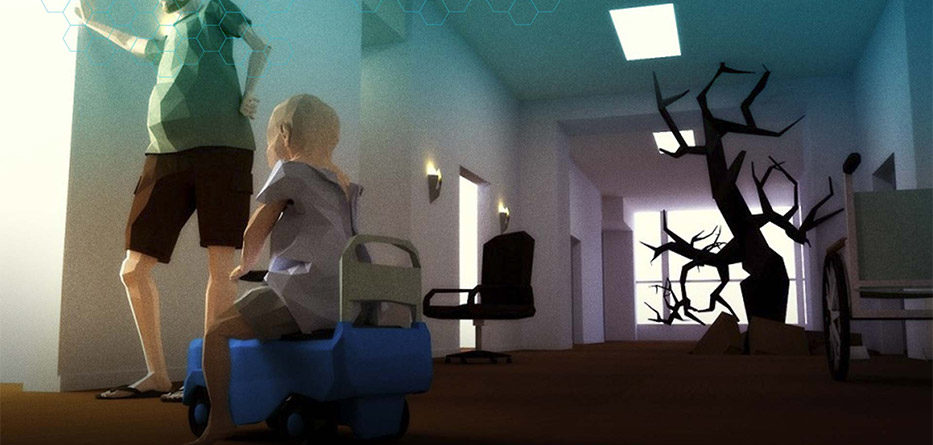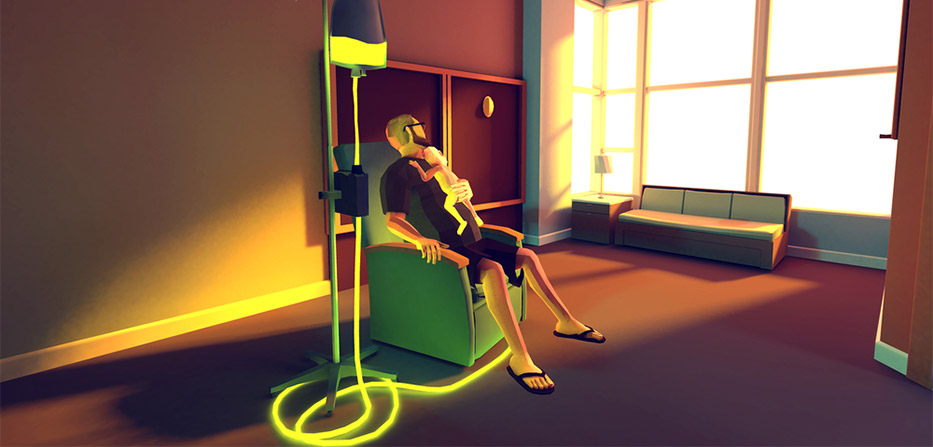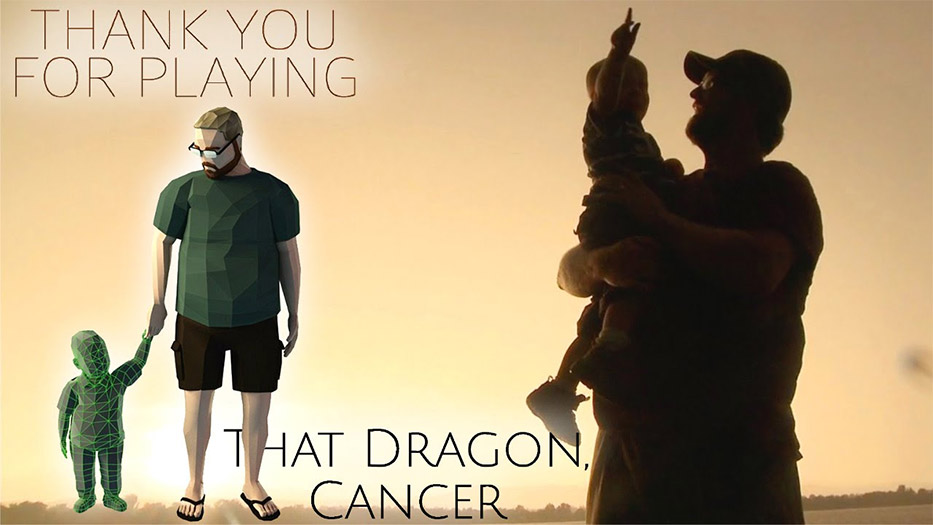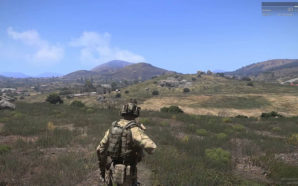I love empathy games. They’ve always been my favourite genre. Probably because I will highly rate any game that can make me cry. I do occasionally take a break from being an emotionless husk you know. Empathy games just bring so much to the table when we talk about defining a game. I think they definitely make a compelling case for game development as an art form. There’s a problem though, gamers themselves argue whether empathy games are… well games at all.
An empathy game at its core is a game designed to make its players empathise with the character. It’s very true that this often leads to them being more of an experience than a game. Even the compelling title That Dragon, Cancer carries the brand ‘Walking Simulator’ on Steam. Empathy games come in hundreds of different packages, from point-and-click to resource management. They’re usually, story rich, but even that is optional like in This War Of Mine. The only thing they have in common is their primary directive being to make their players feel. Usually, feel pretty sad. This is often at the cost of what most would consider the ‘fun’ of the game.
This isn’t the joyful rolling around in Katamari Damacy or letting off steam mowing down civilians in Grand Theft Auto. These are the sort of games that’ll walk you through your character’s suicide or the death of your baby. They aren’t meant to be fun. On top of that, there is often no winning an empathy game. You can get to the end, but that end may be bittersweet or often painful. It is rare that it feels like a true victory. In many respects, empathy games are the complete opposite of what most think a game should be.
Why Do People Hate Empathy Games?
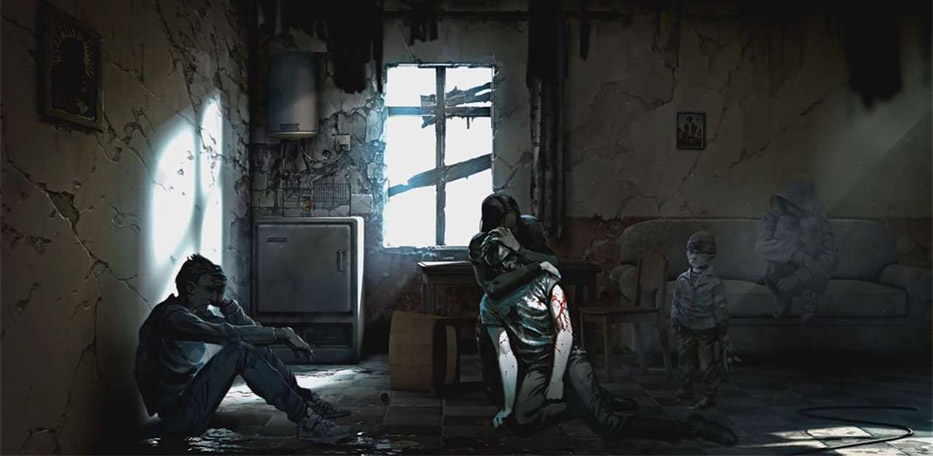
Screenshot from “This War of Mine”
Photo Credit: https://www.gamespot.com/reviews/this-war-of-mine-review/1900-6415963/
Despite the fact that empathy games are my favourite genre in gaming I agree with the criticism. They simply aren’t what we traditionally expect a game to be. They also don’t give us what we usually go to games to find. If I’m angry or upset or homesick I’m unlikely to turn to an empathy game for comfort or distraction. Empathy games satisfy a completely different itch. It is this otherness that sends many players running. At heart games, like fiction, are usually our go to for escapism from our everyday lives. Why would we want to escape our problems only to live out someone else’s?
Empathy Games Are Disempowering
Most video games are designed to empower their players. The underlying message of most games being that as long as you keep trying you’ll succeed. They strive to provide their players with a sense of agency and progress. This is why games are so great when you’re upset or stressed out. This isn’t the case with an empathy game. In fact, the only other genre that is so uniquely emasculating is the survival horror genre. Like a horror game, an empathy game needs to undermine your confidence in order to steer your emotions. This is the opposite of what most players expect or want from a video game.
Usually, an empathy game will put you in the shoes of a weak and flawed character. Then they make that character suffer, often to the breaking point. It’s almost more of a spectator sport for the player sometimes. We just usher our character along to their imminent demise or otherwise oblivion.
Unlike horror games, there isn’t really a thrill to be had from an empathy game. They don’t test your mettle in the same way a horror game can either. At least when you beat a horror game you can take pride in your bravery. Survival horror is a niche, but it is marketable as a rite of passage to those who consider themselves unshakable. Not to mention popularised by screaming YouTubers. In truth, empathy games and horror games have a lot in common. Most good horror games include long lasting empathetic elements like in Silent Hill 2 or Detention. Occupying the same head space as your character is often part of the horror experience. If a game can lull you into empathising with your character it doesn’t need cheap jumpscares to get at you.
They Deal With Painful Subjects
Plenty of games approach dark subjects, even making them their centrepieces. Yet, empathy games have a habit of sinking to levels of darkness other games won’t touch. Some grief is easily marketable from a story perspective. A dead child, a tragic past, a cheating spouse, it’s all par for the course. Rarely are we forced to live that experience in order to play the game. While most games expose you to a snippet of sadness an empathy game gives you the context.
In That Dragon, Cancer there is a moment where you are in a hospital and there are hundreds of cards. Real messages from real families to their dying children and friends just strung about the ward. It’s something to sting the eyes and still the tongue. Unlike most games, the sadness isn’t the motivation, it’s the obstacle or the environment. One you might not overcome or escape. A fight you cannot win. Some empathy games will allow the player to move past the pain, to win. Yet, more often than not, the light at the end of the tunnel is an oncoming train.
Empathy Games Do Not Have A Monopoly On Emotion
As gaming has evolved so too have the characters and stories. An empathy game may seem like an overdose of emotion. Plenty of games like Silent Hill, Bioshock and more have empathetic elements. They may not be the centrepiece of the game but they are still present and often a lot more palatable for players. They’re often easily avoidable elements neatly wrapped up in engaging gameplay. Sound-bite empathy as it were. Narrative driven empathy games often fall down when it comes to a gameplay standpoint. Despite the fact they spread out across many different styles of game, they rarely receive acclaim for their mechanics. At best they’ll be complimented for their visuals.
This is just another item that holds empathy games back from the mainstream. Why would anyone buy an empathy game when they can experience it in another game anyway? It isn’t the most approachable genre if you are coming from a traditional mechanics-driven kind of gameplay.
Why You Should Play Empathy Games Anyway
I’ll gladly acknowledge where empathy games fail. They often aren’t fun, or sensational, or even profitable. At the same time, recent successes like Undertale prove that empathy games can make it big. There are a lot of reasons outside of fun and good mechanics to pick up a game. It’s like I said at the start; they’re built to satisfy a different itch. They may not empower you or break your bad mood, but they can offer you relief in other ways.
They Act As A Form Of Catharsis
As we grow up we learn to hide our emotions. Stiff upper lip and all that. Sometimes feelings build up and simmer just under the surface. Having a good cry is often the best way to release that pressure in a safe environment. That moment when an empathy game reaches its bittersweet climax is the perfect time to blubber like a baby. Many empathy games are tailored to tug at your heart strings and produce an empathic response. There’s no shame in giving into it.
Games in general, can be a good release for pent up aggression. Even a great place to mentally escape a bad situation. Growing up, I can’t even convey how grateful I was to have these fantasy worlds to call home. Yet, an empathy game can offer you a release other games can’t. Games are often just a distraction, but an empathy game that actually makes you cry and purge some emotions will do a world of good.
They Can Resonate With You And Your Experiences
One thing that often comes hand in hand with feelings of grief are feelings of isolation. That voice in your head that tells you no one understands your pain. While reliving an experience in an empathy game can be painful there is also some relief. A reminder that you are not alone and that there are people who can understand your plight. In those circumstances, empathy tools can be used as potent tools to help people cope.
Due to the public opinion of games as a trivial pursuit, it makes it a little easier to share something intimate. Pain can be on of the most intimate experiences we face in our day to day. Being able to share that in a setting where we don’t feel on trial is a relief. Finding that your experience is relatable to someone else’s or depicted is uplifting.
In that same vein of thought, developing these games can be a coping mechanism in itself. The final product, a commemoration of having lived through that experience. If a problem shared is a problem halved then sharing it amongst millions must count for something. At the end of the day, we’re all human and it’ll never hurt us to have another outlet to share our human experiences.
They Showcase The Advantages Gaming Has In Relation To Story Telling
Books, films, galleries, they can all tell a story. A game can make you live that story. There is no denying the fact that as an empathy tool games have the advantage. No other medium can so thoroughly entrench its participant in its world. As technology advances, this will only become more and more true. There is something special about doing things yourself inside a game world. Even if it is a guided experience, just the idea that you did it makes it real. Games can also come with multiple endings with cause and effect. Each experience tailoring itself to how you personally deal with it.
I remember the first time I tried virtual reality. Unfortunately, being terrified of heights I was not thrilled to find myself in Eagle Simulator. I knew my feet were firmly planted on the ground, but as I nosed dived toward the ocean I could feel the wind on my face as it were real. This technology is being applied to things like Project Syria. Giving players the opportunity to be immersed in an authentic feeling and horrifying environment. One where you can hear injured children screaming from the audio that was gathered on-site. Just another step closer to being a new form of horror game, true to life horror.
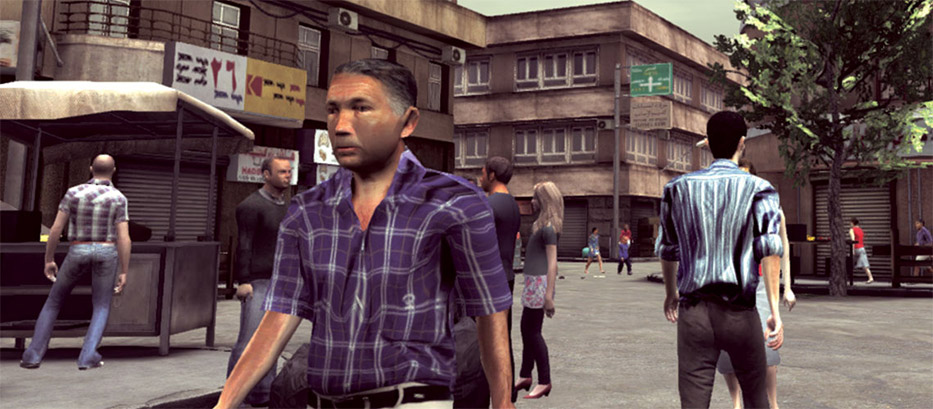
Screenshot from “Project Syria”
Photo Credit: https://dublin.sciencegallery.com/trauma/assets/img/exhibits/project-syria.jpg
A Window Into Another Person’s Woe
I wouldn’t assume that any medium could convey someone’s experience with 100% accuracy. Yet, when it comes to sharing a small part of that experience I can think of no better tool than a game. Not only do they offer an autobiographical experience, but one the player must also live through. The clue is in the title, these games are perfect for evoking empathy and compassion in the player. I dare say a well laid out game could even change someone’s mind for better or worse.
That is, what they are designed for after all. The great thing about them is you can set the time you play. You, unlike the subject matter, are safe and able to walk away from the experience. You don’t get that in real life. In reality, when it rains it pours. That’s part of the reason I love empathy games. They may rob you of your sense of empowerment and agency, but in the real world, we don’t always have that. We aren’t all super soldiers and when the zombie apocalypse comes we’ll probably be eaten. Empathy games are more grounded in reality in a sense. Accepting of the fact that sometimes life is going to kick you in the teeth and you just have to accept it. For me, an empathy game isn’t fun, but it is a compelling thought provoking exercise in compassion.




